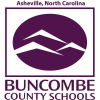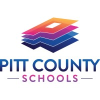DUTIES AND RESPONSIBILITIES :
Serves as a member of a building leadership team, works to align district and building goals, and evaluates student data in support of effective school improvement planning.
Facilitates collaborative groups of teachers in which issues related to implementing effective content instruction are considered, current research on effective practice is examined and discussed, and student work and data are reviewed.
Serves as a member of a professional coaching community, collaborating with other instructional leaders and participating in professional development and inquiry into his or her own instructional leadership practice.
Works within four defined areas of responsibility (Professional Development, The Coaching Cycle, Demo-Lessons / Co-Teaching, and Professional Learning Communities) to :
- Communicate the vision and requirements of an effective instructional program to include the use of digital resources to the appropriate stakeholders while utilizing relevant and current research and other data-informed performance measures and outcomes.
- Facilitate the use of accepted learning taxonomies, effective instructional design
principles, and appropriate assessment methods.
- Facilitate and support instruction across the curriculum to promote engagement, creativity, critical thinking, problem-solving, and student-owned exploration of information and ideas based on demographic and performance data, state and national guidelines, and emerging trends.
- Model a variety of instructional strategies, Digital Age resources, and assessment tools to assist teachers in integrating digital-age learning in all content areas for all learners.
- Model flipped instructional practices when appropriate in professional development and serve as a resource for training and guiding teachers in flipping instructional practice.
- Demonstrate comprehensive knowledge of a wide range of instructional strategies to include digital resources which support inquiry and student-centered learning, professional best practices, and acquisition of Digital Age skills.
- Encourage the use of instructional tools and resources that support the diverse needs of students to improve creative and innovative student learning.
- Provide professional development addressing instructional theory, practice, and resources that promote student-owned learning, relevancy, Digital Age skills, collaboration, critical thinking and creativity, and varied student communication to authentic audiences.
- Demonstrate comprehensive knowledge of curriculum goals across grade levels and subject areas.
- Promote global digital literacy, awareness, and cultural understanding by facilitating collaboration and communication using instructional tools to include digital resources.
- Provide teachers with professional development, modeling the effective integration of information and technology skills, collaboration, critical thinking, and creativity.
- Participate in observations for professional growth and collaborate with other educators to mentor and support professional growth throughout the school learning community.
- Apply professional skills to investigate, apply, and share new research on digital tools, resources, pedagogy, curriculum, and other relevant topics to the professional learning community.
- Serves as a team player and role model for other employees in the organization; demonstrates a commitment to continuous quality improvement;
supports and exhibits organizational core values of caring, respect, integrity, responsibility, high expectations, being customer-driven, and valuing diversity.
Performs other duties and accepts responsibilities as assigned.
PHYSICAL REQUIREMENTS :
Must be able to communicate orally and in writing with parents, staff, and community leaders.
Must have finger dexterity and be able to physically perform the basic life operational functions of kneeling, sitting, walking, stooping, reaching, lifting, pushing, pulling, talking, seeing, hearing, and repetitive motion.



